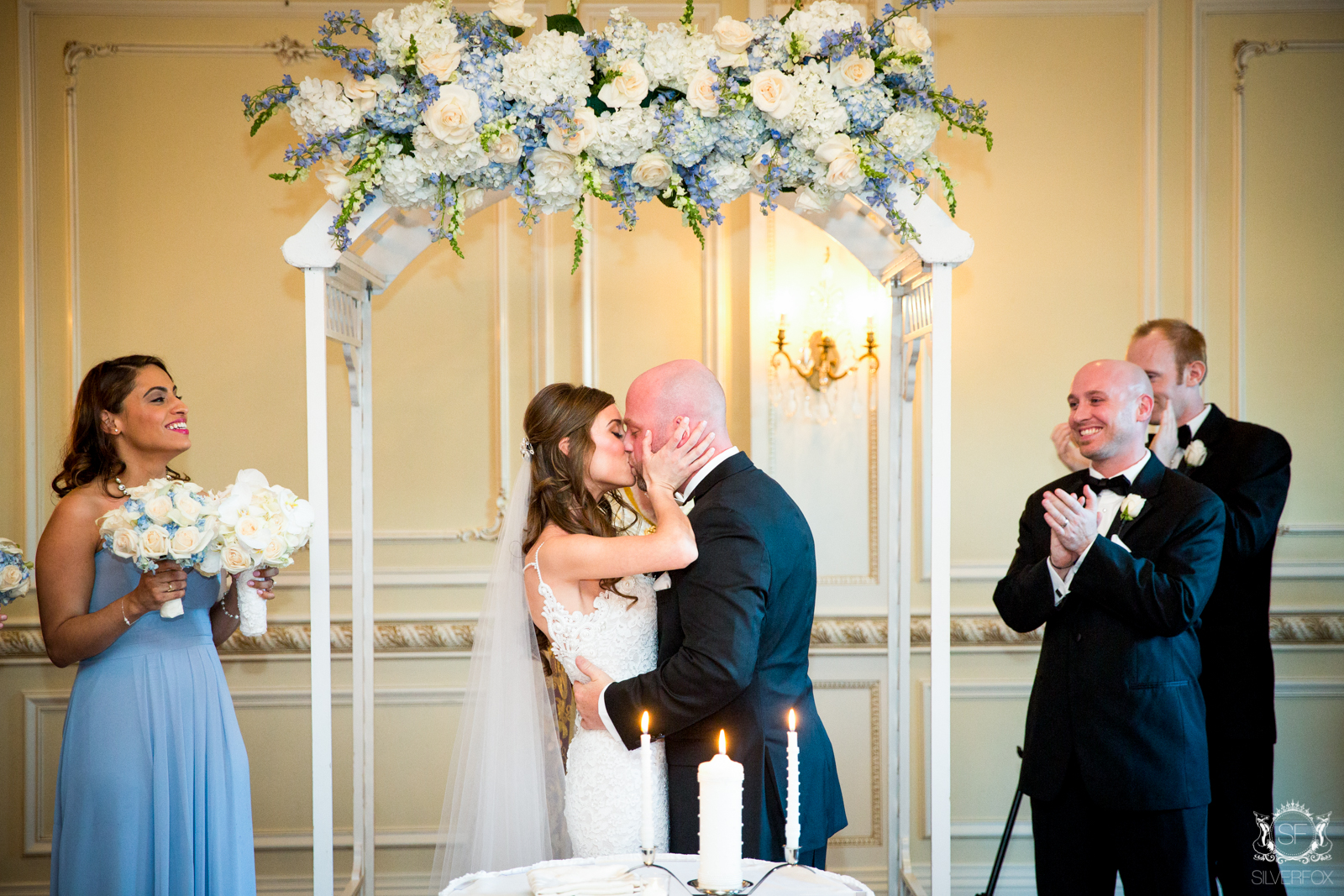
How to Write Traditional Wedding Vows
Weddings vows are one of the most important, meaningful, and tear-jerking moments you may witness at a wedding. It is where emotions, tradition, and overwhelming love meets.
However, if you think all vows are the same and created equal, you’re wrong. There are many vows from all walks of life – personal, religious, etc. Traditional wedding vows fall under the religious category.
How to Write Traditional Wedding Vows
Traditional Jewish Wedding Vows
In a traditional Jewish wedding, the couple to be married should recite the following speech in Hebrew as they exchange their wedding rings.
“I am my beloved’s and my beloved is mine.”
While the ring exchange takes place, the Seven Blessings (Sheva Berakhot) should be recited. Below is the translated excerpt:
“Blessed are You, Adonai, our God, Ruler of the universe, gladden the beloved companions as You gladdened Your creatures in the garden of Eden.
Blessed are You, Adonai, Who gladdens this couple.
Blessed are You, Adonai, our God, Ruler of the universe, Who created joy and gladness, loving couples, mirth, glad song, pleasure, delight, love, loving communities, peace, and companionship.
Adonai, our God, let there soon be heard … the voice of the loving couple, the sound of their jubilance from their canopies and of the youths from their song-filled feasts.
Blessed are You Who causes the couple to rejoice, one with the other.
We bless God for creating joy and happiness, bride and groom, mirth song, gladness and rejoicing, love and harmony, peace and companionship; and we thank God for letting this bride and groom rejoice together.”
Traditional Hindu Wedding Vows
During a Hindu wedding, while the bride and groom walk around a flame in honor of Agni (the Hindu god of fire), the couple will recite the following:
“Let us take the first step to provide for our household a nourishing and pure diet, avoiding those foods injurious to healthy living.
Let us take the second step to develop physical, mental, and spiritual powers.
Let us take the third step to increase our wealth by righteous means and proper use.
Let us take the fourth step to acquire knowledge, happiness, and harmony by mutual love and trust.
Let us take the fifth step so that we are blessed with strong, virtuous, and heroic children.
Let us take the sixth step for self-restraint and longevity.
Finally, let us take the seventh step and be true companions and remain lifelong partners in this wedlock.”
Traditional Methodist Wedding Vows
While the previous two religions contained lengthy traditional vows for the couple, Methodists keep it short and simple. These vows are basically a call and response type. The only phrase the couple to be married needs to remember is: “I do”.
The officiant will then be asking the couple the following questions:
“Will you have this (woman/man) to be your (wife/husband), to live together in holy marriage?”
“Will you love (her/him), comfort (her/him), honor, and keep (her/him) in sickness and in health, and forsaking all others, be faithful to (her/him) as long as you both shall live?“
The questions will then be answered with “I do”.
Traditional Catholic Wedding Vows
Just like the Methodists, traditional Catholic vows are a call and response type. Before the couple can recite their vows to one another, they need to answer the following three questions from the priest:
“(Name) and (name), have you come here freely and without reservation to give yourselves to each other in marriage?“
“Will you honor each other as man and wife for the rest of your lives?”
“Will you accept children lovingly from God, and bring them up according to the law of Christ and his Church?“
The couple will then be expected to answer either “I will” or “yes” before reciting their vows.
Non-Denominational Wedding Vows
In this wonderful set of wedding vows, the husband and wife will have a knot tying unity ceremony where the couple will make a fishermen’s knot that grows stronger and durable with pressure.
After the knot tying, they will then recite this vow to one another:
“I, (name), commit myself to you, (name of significant other), as (wife/husband) to learn and grow with, to explore and adventure with, to respect you in everything as an equal partner, in the foreknowledge of joy and pain, strength and weariness, direction and doubt, for all the risings and settings of the sun.
We tie these knots to symbolize our connection to one another. They represent our trust in each other and our combined strength together.”
There is a lot more to wedding planning than the vows, so please schedule an appointment to speak with our event coordinators to discuss your plans for what will be one of the best days of your life.

